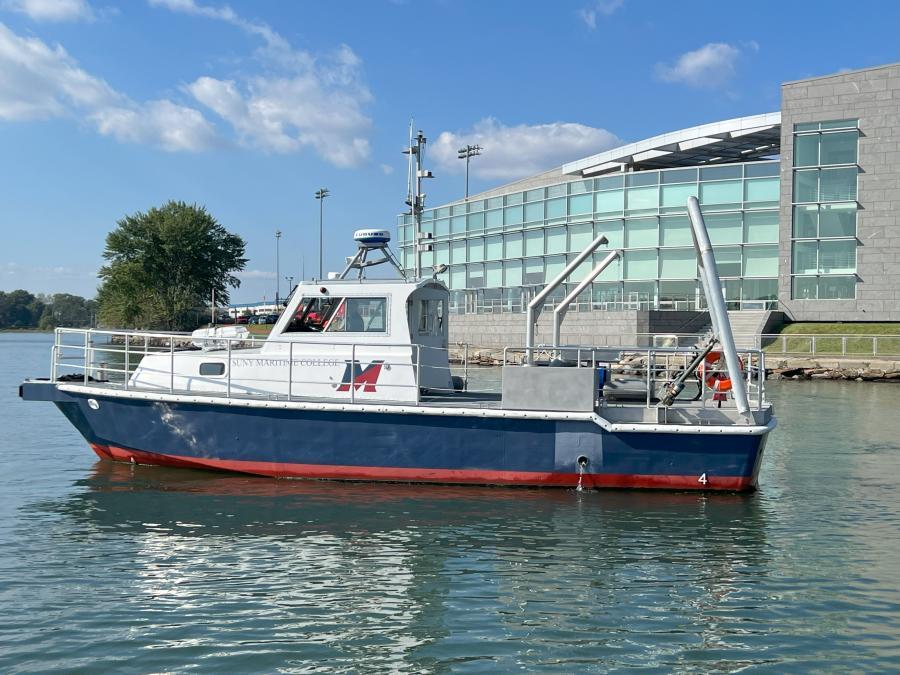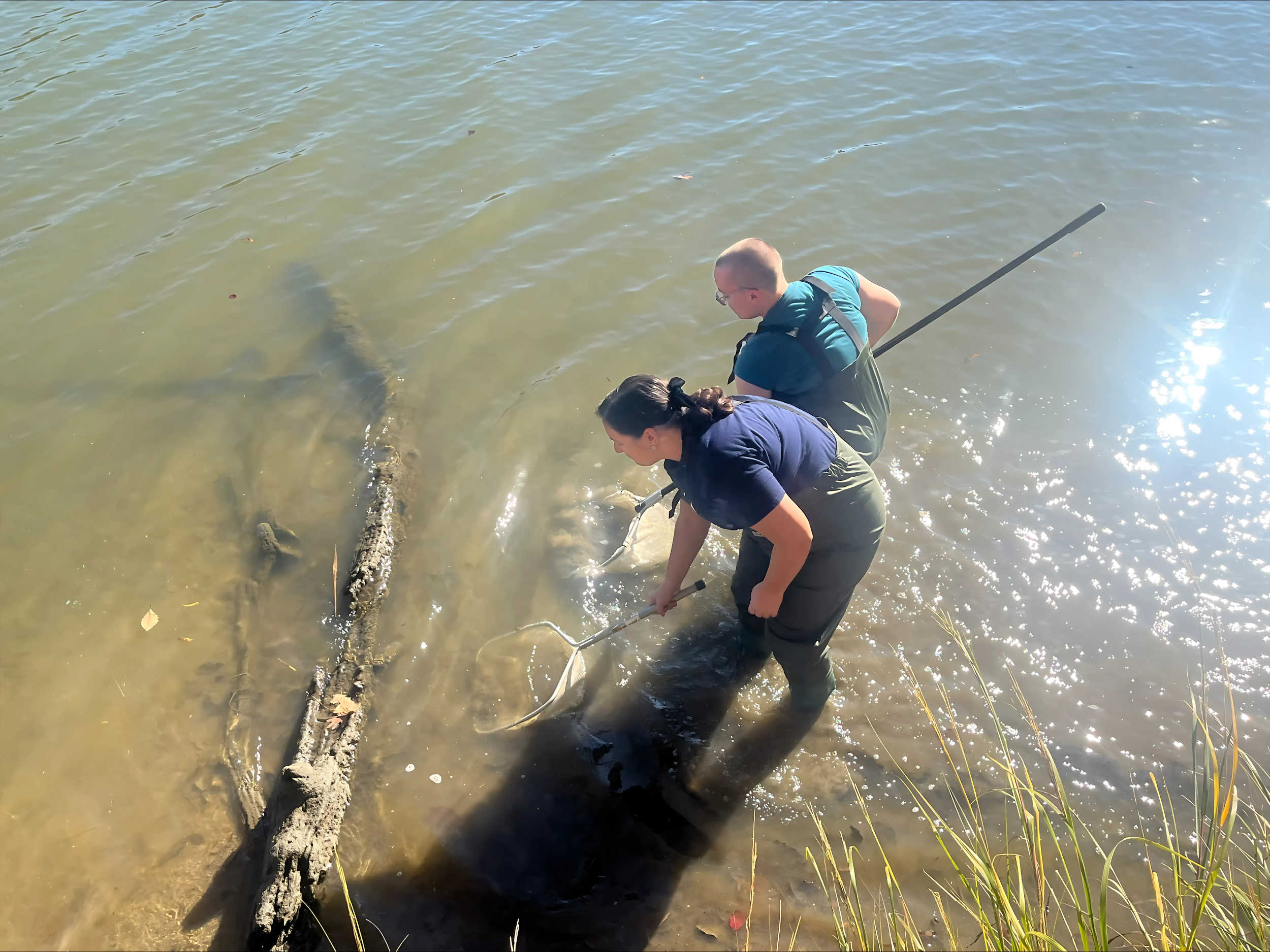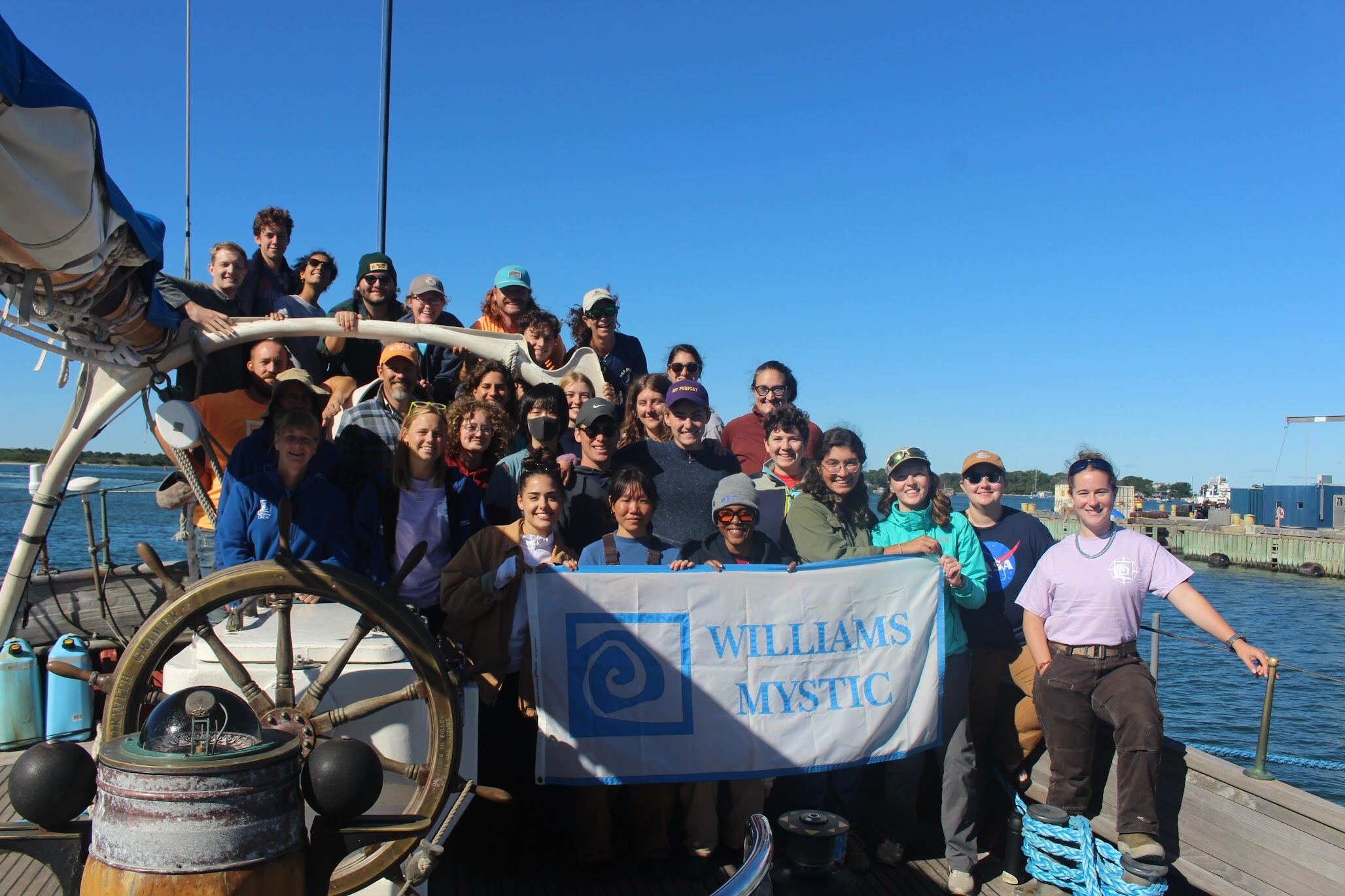
The Bachelor of Science in Marine Environmental Science (MES) program is an interdisciplinary exploration of the marine environment. MES leverages its unique location in the Bronx to provide students with unparalleled access to the East River, Long Island Sound, and New York Harbor—natural laboratories for studying marine and coastal ecosystems in a real-world context.
The MES program offers a comprehensive foundation in marine sciences, integrating applied research, interdisciplinary core sciences (biology, chemistry, oceanography, and meteorology) and maritime industry practices. With a strong emphasis on hands-on learning, community engagement, and undergraduate research, MES provides students with the expertise needed to excel in careers spanning marine conservation, science education, oceanography, environmental consulting, and maritime operations.
Academic Program
The curriculum consists of general education courses, foundational and advanced classes, and practical learning in subjects such as biology, chemistry, environmental science, geology, physics, meteorology, and oceanography. Students will enhance their studies by selecting core courses in marine biology, oceanography, and meteorology. Additionally, you will gain hands-on experience in our modern analytical lab, new waterfront wet lab, and onboard the 41’ Sea Lab Vessel T/V.
Our students enjoy the advantages of small class sizes, which facilitate personalized attention and enhanced interaction. These classes are taught by dedicated full-time faculty members who are committed to fostering an engaging learning environment and providing tailored support to each student. MES majors gain additional career preparation by participating in professional experiences. All students must complete two summer internships or pursue a U.S. Coast Guard third mate’s license by sailing the college training ship, the Empire State, and joining the regiment of cadets. The regiment is a disciplined lifestyle program without affiliation with the military.

Learning Outcomes
Upon successful completion of Bachelor of Science program in Marine Environmental Science, graduates will be able to:
- Apply meteorological, oceanographic, and biological concepts in the understanding of environmental issues.
- Communicate contemporary environmental concepts and issues.
- Apply and execute the scientific method
MES majors may further tailor their academic program in one of two ways:
Professional Internship Program. As an intern student, you will have a more traditional college experience and get to complete two professional internships related to your academic studies. MES students have completed internships at:
- Riverhead Foundation for Marine Research & Preservation
- Queens Zoo
- Bronx River Alliance
- Long Island Aquarium
- Save the Sound
- Town of Islip Shellfish Hatchery
- Billion Oyster Project
- Various Research Experience for Undergraduate (REU) Programs
U.S. Coast Guard Deck License Program: You will take additional courses required to earn a U.S. Coast Guard license. A deck license qualifies you to work on-board commercial vessels, navigating, handling cargo, maintaining the ship and ensuring operational safety. Earning a license requires you to belong to the college regiment of cadets, a disciplined lifestyle program that is not affiliated with the military. Regimental students may also choose to complete internships through the cadet-shipping program.
| Fall Semester | Fall Semester | Spring Semester | Spring Semester | NOTES | ||
|---|---|---|---|---|---|---|
| Regimental New Student (Campus Resident) | Traditional Student (Campus Resident) | Regimental Student (Campus Resident) | Traditional Student (Campus Resident) | |||
| In-State | $14,155.50 | $13,195.50 | $13,025.50 | $12.945.50 | Rates apply to eligible veterans and their dependents. | |
| In-Region | $15,925.50 | $14,965.50 | $14,795.50 | $14,715.50 | ||
| Out-of-Region | $19,605.50 | $18,645.50 | $18,475.50 | $18,395.50 | ||
| International | $20,807.50 | $19,847.50 | $20,135.50 | $20,055.50 |
MES Students Help Launch Aquatic Parasite Research
Marine Environmental Science students Terry Sciarratta and Caroline Garber recently visited the Smithsonian Environmental Research Center with faculty mentor Dr. Patricia O’Leary. As part of a specialized workshop, the students engaged in in-depth discussions with senior scientists on topics such as research design, methodologies, and securing grant funding to support emerging marine science initiatives. They also toured a cutting-edge genetics research facility, examined marine parasites under the microscope, and collected live specimens from a surrounding tidal marsh, gaining valuable hands-on experience in field and lab techniques.
This visit was the foundation for a year-long research project investigating aquatic parasites in shrimp and crabs along the East Coast. As part of the study, MES students will regularly monitor collection containers deployed at SUNY Maritime's waterfront, retrieve crustacean specimens, and screen them for parasites in the lab. The project strengthens field research skills and contributes to a growing body of knowledge on parasite-host relationships in coastal ecosystems.

Natalie Garrow's Experience at the Williams-Mystic Coastal & Ocean Studies Program
Marine Environmental Science student Natalie Garrow spent a transformative semester in the Williams-Mystic Coastal & Ocean Studies Program. This unique interdisciplinary experience blends science, policy, history, and literature through hands-on learning. The semester began in Mystic, Connecticut, where Natalie lived and studied with fellow students, taking intensive courses including Marine Policy, Literature of the Sea, Maritime History, and a science course in Oceanography or Marine Ecology. A highlight of the program was a 10-day offshore sailing voyage, where students disconnected from electronics and immersed themselves in life aboard a ship, conducting water sampling, studying marine organisms, and engaging in daily lessons at sea. Natalie also honed her creativity throughout the semester through a woodcarving skills class. She participated in field seminars exploring environmental and cultural issues across the Pacific Northwest, Louisiana, and Massachusetts.
From visiting the Makah Tribe in Washington and discussing tribal sovereignty, to exploring climate change impacts with the Choctaw Tribe in Louisiana, Natalie’s experience demonstrated how deeply interwoven environmental issues are with cultural and social dynamics. She examined shark conservation policies in the U.S. and explored spiritual views of sharks in Hawaiian and Chinese traditions. In New Bedford, Massachusetts, she learned firsthand about the offshore wind industry and engaged in active policy debates. Natalie reflects on the program as “truly unforgettable,” emphasizing the deep friendships, professional connections, and hands-on learning that shaped her academic and personal growth. She encourages MES students to apply during their sophomore or junior year to make the most of this life-changing opportunity.

